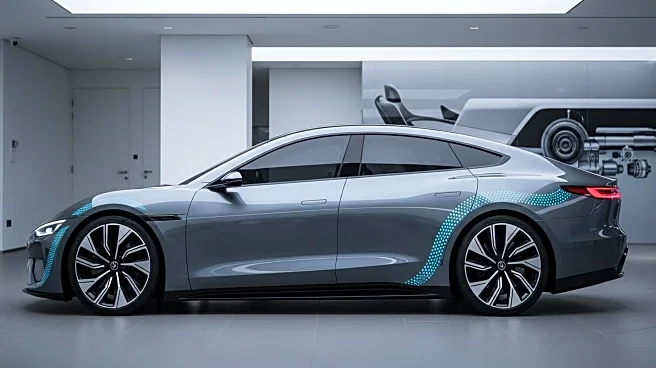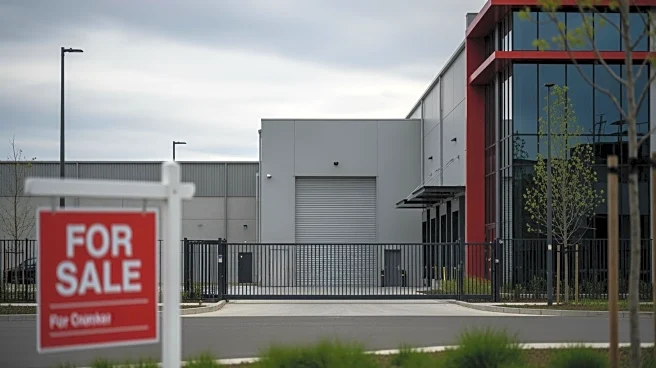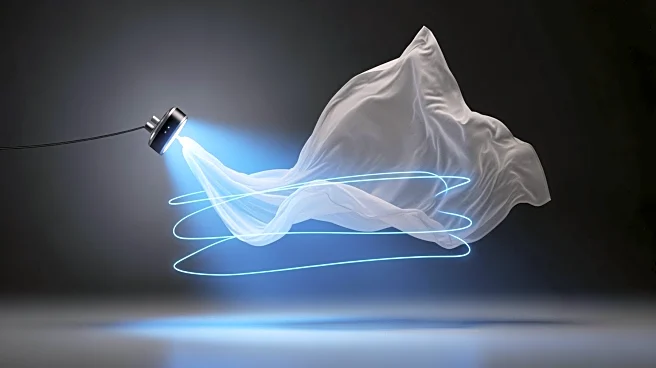What is the story about?
What's Happening?
BMW has introduced its new electric 3 Series model, the i3, at the reveal of the 2026 iX3. This new i3 is built on the Neue Klasse EV platform, marking a significant shift from the original i3 city car to a more robust electric sedan. The i3 will feature BMW's first 800-volt architecture, promising a range of 400 miles on the EPA test cycle and rapid charging capabilities of up to 400 kilowatts. This translates to adding approximately 230 miles of range in just 10 minutes. The vehicle will be equipped with BMW's sixth-generation electric motors, delivering 463 horsepower and 473 pound-feet of torque. The interior will include a widescreen display and a dash-mounted touchscreen running BMW's new Operating System X. The i3 will also have a less-powerful, more-efficient single-motor rear-drive variant, and an M variant is expected to follow.
Why It's Important?
The introduction of the electric i3 represents BMW's commitment to expanding its electric vehicle lineup and advancing its technology. With the Neue Klasse platform, BMW is setting a new standard for electric vehicle efficiency and performance. This move is crucial as the automotive industry increasingly shifts towards electrification, driven by consumer demand and regulatory pressures for reduced emissions. The i3's advanced features and high efficiency could position BMW as a leader in the electric sedan market, potentially influencing competitors to innovate further. The rapid charging capability and extended range address key consumer concerns about electric vehicles, making them more viable for long-distance travel.
What's Next?
BMW plans to launch 40 new or updated models by the end of 2027, indicating a busy period of innovation and expansion for the company. The release of the i3 and its variants will likely be followed by further developments in BMW's electric vehicle technology and design. As the automotive market evolves, BMW's strategy may influence other manufacturers to accelerate their electric vehicle offerings. Stakeholders, including consumers and industry competitors, will be watching closely to see how BMW's advancements impact market dynamics and consumer preferences.
Beyond the Headlines
The shift to electric vehicles like the i3 could have broader implications for environmental sustainability and urban planning. As more consumers adopt electric vehicles, there may be increased demand for charging infrastructure and changes in energy consumption patterns. Additionally, the design and technology innovations in the i3 could set new benchmarks for vehicle safety and user experience, influencing future automotive standards.















